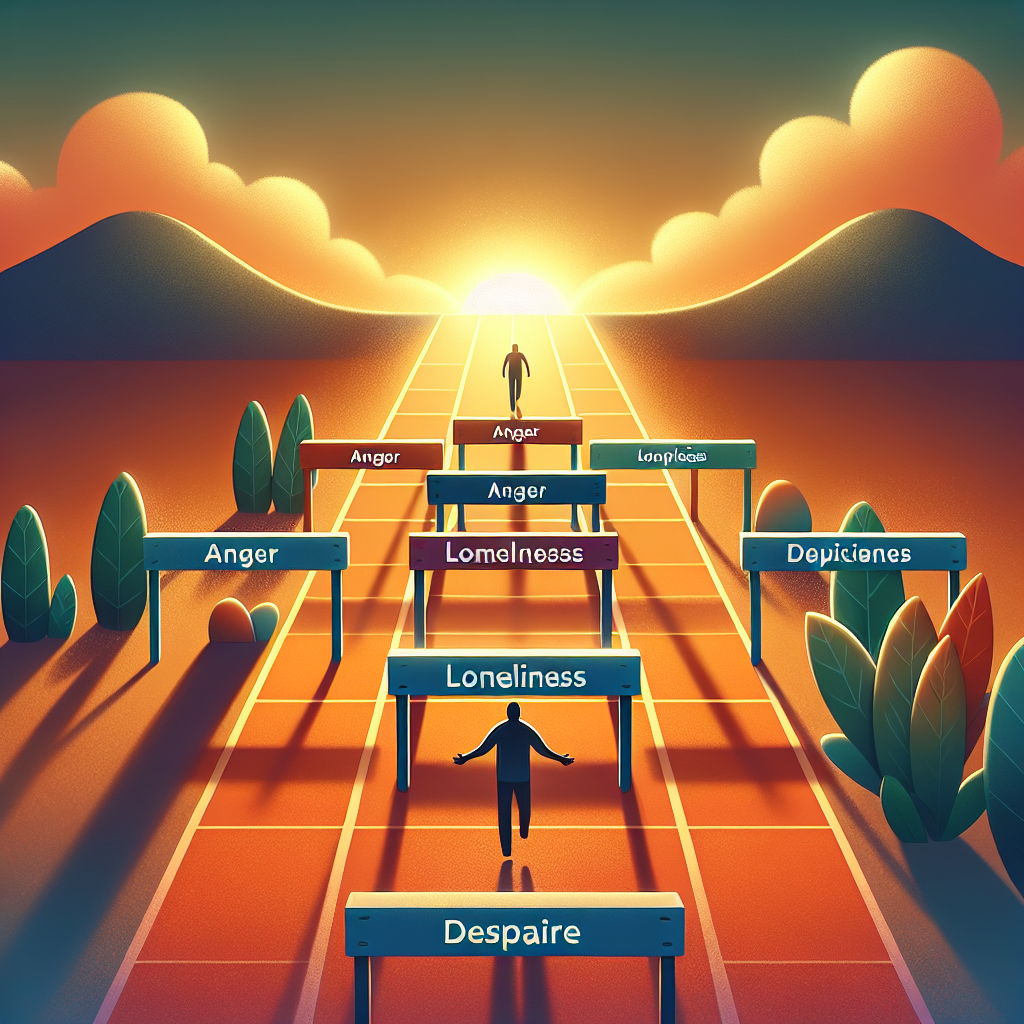Overcoming Emotional Hurdles with Divorce Coaches
Boost Your Resilience: Divorce Coaching for Emotional Support
Introduction
Divorce is a difficult and emotionally challenging experience for anyone to go through. The end of a marriage can bring a wide range of emotions such as sadness, anger, fear, and even relief. It can also lead to feelings of uncertainty, loneliness, and a loss of identity. These emotional hurdles can be overwhelming and make it difficult to navigate the divorce process.
Understanding the Role of Divorce Coaching
Divorce coaching is a relatively new profession that focuses on helping individuals navigate the divorce process in a healthy and empowering way. Divorce coaches provide support, guidance, and resources to help individuals overcome the emotional challenges of divorce. They also help clients to make informed decisions and create a plan for their future post-divorce.
Identifying Emotional Resilience in Divorce
Emotional resilience is the ability to bounce back from difficult experiences and challenges. In the context of divorce, emotional resilience is the ability to navigate the emotional hurdles and come out stronger and more empowered on the other side. It is not about avoiding or suppressing emotions, but rather learning healthy coping mechanisms to deal with them.
Techniques for Developing Emotional Resilience
There are various techniques that can help individuals develop emotional resilience and navigate the challenges of divorce. These include:
- Self-reflection: Taking time to reflect on your emotions and thoughts can help you gain a better understanding of yourself and your needs.
- Mindfulness: Practicing mindfulness can help you stay present and manage overwhelming emotions.
- Self-care: Taking care of your physical, emotional, and mental well-being is crucial in building emotional resilience.
- Positive thinking: Focusing on the positive aspects of your life can help shift your perspective and build resilience.
- Seeking support: Surrounding yourself with a support system of family, friends, and professionals can help you cope with emotions and challenges.
The Importance of Self-Care in Divorce
Self-care is an essential aspect of developing emotional resilience in divorce. When going through a difficult time, it can be easy to neglect self-care and focus on other things. However, taking care of yourself is crucial in managing emotions and staying resilient. Some self-care activities that may be helpful during divorce include:
- Exercise: Physical activity can help release tension, boost mood, and improve overall well-being.
- Meditation or yoga: These practices can help reduce stress and promote relaxation.
- Journaling: Writing about your thoughts and emotions can help you process them and gain insight into yourself.
- Pampering yourself: Taking a hot bath, getting a massage, or treating yourself to a favorite activity can help boost mood and reduce stress.
- Setting boundaries: It is important to set boundaries with others and prioritize your own needs during this time.
Navigating Co-Parenting with Emotional Resilience
One of the most challenging aspects of divorce is co-parenting with your ex-partner. It is essential to approach this situation with emotional resilience to ensure the well-being of your children. Some tips for navigating co-parenting with emotional resilience include:
- Communication: Effective communication is key in co-parenting. Keeping lines of communication open and respectful can help prevent misunderstandings and conflicts.
- Cooperation: Working together as a team for the sake of your children can help reduce tension and create a positive co-parenting dynamic.
- Flexibility: Being open to making adjustments and changes when necessary can help make co-parenting smoother.
- Letting go of the past: It is important to let go of any resentment or anger towards your ex-partner and focus on moving forward for the well-being of your children.
Addressing Common Challenges in Divorce
Divorce comes with its own set of challenges and obstacles that can make it even more emotionally taxing. Some common challenges that individuals may face during divorce include:
- Financial concerns: Divorce can have a significant impact on finances, leading to stress and uncertainty about the future.
- Loss of support: Going through a divorce can mean losing the support of family and friends who may have been connected to your ex-partner.
- Changes in living situation: Divorce may result in moving to a new home, which can bring up feelings of loss and instability.
- Legal proceedings: Dealing with the legal aspects of divorce can be overwhelming and cause stress and anxiety.
It is important to acknowledge and address these challenges to work through them and build emotional resilience.
Utilizing Support Systems for Emotional Resilience
Having a support system in place during divorce can be incredibly beneficial in developing emotional resilience. This support system can include friends, family, and professionals. Friends and family can provide emotional support and a listening ear, while professionals such as therapists and divorce coaches can offer guidance and resources to navigate the emotional challenges of divorce.
Overcoming Stigma and Seeking Professional Help
Unfortunately, there is still a stigma surrounding seeking professional help for emotional challenges, especially in the context of divorce. However, seeking help from a therapist or divorce coach does not mean you are weak. It takes strength and courage to acknowledge your emotions and seek help in managing them. Professional help can provide valuable support and guidance in building emotional resilience and moving forward after divorce.
Moving Forward with Emotional Resilience and Empowerment
While divorce can be emotionally challenging, it can also be an opportunity for growth and self-discovery. By utilizing support systems, practicing self-care, and developing emotional resilience, individuals can work through their emotions and come out stronger and more empowered on the other side. Remember to be patient and kind to yourself during this process, and seek help when needed. With time, you will be able to move forward and create a fulfilling life post-divorce.




